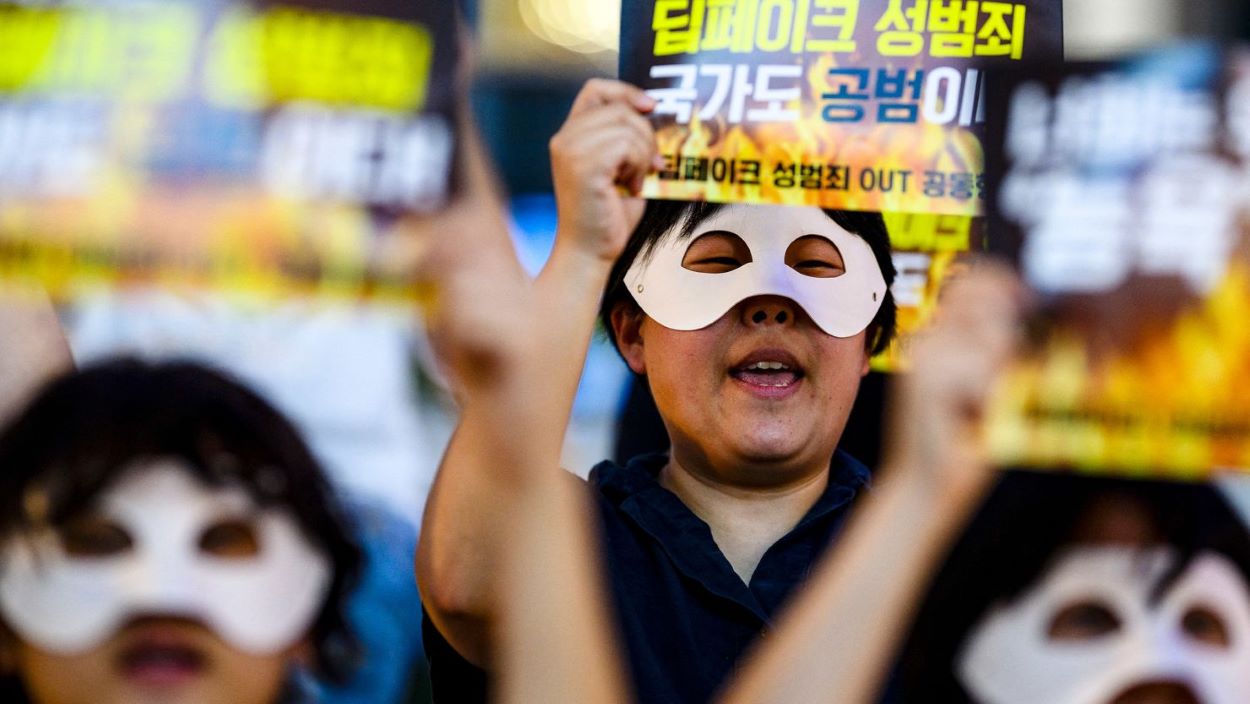South Korean lawmakers passed a bill that criminalizes the possession or viewing of sexually explicit deepfake images and videos, with potential penalties including prison terms and fines.
This legislative move follows a public uproar in South Korea over the creation and widespread sharing of illegal deepfakes via Telegram group chats, leading to demands for stricter penalties.
Under the new bill, individuals who purchase, save, or view such content could face up to three years in prison or fines up to 30 million won ($22,600).
Currently, the production of sexually explicit deepfakes intended for distribution is already punishable under the Sexual Violence Prevention and Victims Protection Act, with penalties of up to five years in prison or a 50 million won fine.
With the new legislation, the maximum sentence for these crimes will increase to seven years, regardless of intent.
The bill now awaits the signature of President Yoon Suk Yeol to become law.
According to Yonhap news agency, South Korean police have dealt with over 800 deepfake-related sex crime cases this year, a significant increase from 156 cases in 2021, the first year such data was recorded. Police note that most involved are teenagers.
Earlier this month, police initiated an investigation into Telegram to determine if the messaging service played a role in distributing sexually explicit deepfake content.
Globally, nations are struggling to address the rise of deepfake materials. In the United States, Congress is considering legislation that would enable victims of nonconsensual sexual deepfakes to sue and another that would criminalize the distribution of such content while obligating tech companies to remove it.
Earlier this year, the social media platform X responded to the spread of fake sexually explicit images of pop singer Taylor Swift by blocking user searches for her name.






